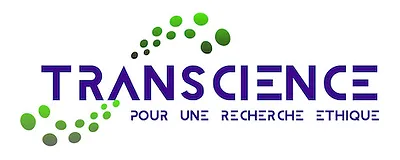The Animal Protection Index (API), produced by World Animal Protection, is a ranking of 50 countries worldwide according to their legislation and political commitment to animal protection.
In order to assess each country’s animal protection index, they were rated on various indicators covering the most important aspects of animal protection. One of these indicators concerns the protection of animals used in scientific research: Click here to access the map.
This index was first established in 2014, and its methodology revised in 2020.
Methodology : click here
It’s easy to compare the legislation of different countries, as each country has a sheet summarizing its position with regard to the various indicators.
United States
Click here to to access the French summary of the “Animal Protection Index” explanatory leaflet written in 2020.
Significant legislative changes have taken place since 2022, with the passage of two laws modernizing the FDA (Federal and Drug Administration), which is responsible in particular for bringing drugs to market. The first law (known as the FDA Modernization Act 2.0), enacted in December 2022, updated the legal definition of non-clinical testing to include methods other than animal testing, such as in vitro testing or computer modeling (amending the 1938 law requiring potential drugs to be tested for safety and efficacy in animals). However, this is only a possibility, nothing is made compulsory, but the law introduces greater flexibility and establishes a level of equivalence between animal testing and the new methods.
Under the second bill (which had seen a first version with a vote in December 2024 by the House of Representatives(FDA 3.0)), passed in December 2025 by the U.S. Senate(S.355 – 119th Congress (2025-2026): FDA Modernization Act 3.0 | Congress.gov), the Secretary of Health and Human Services, acting through the Commissioner of Food and Drugs, shall issue, not later than one year after the date of enactment of the bill, an interim final rule to amend the Code of Federal Regulations to :
- replace any reference to “animal” tests, data, studies, models and research with a reference to non-clinical tests, data, studies, models and research, covering both traditional tests and new non-animal methods;
- add the definition of “non-clinical test” to the article in the Federal Law on Food, Medicines and Cosmetics.
This change aims to accelerate the drug development timetable, while promoting the use of human data in safety and efficacy assessments. This law requires the FDA to accelerate the process of updating its regulations and clarifying new testing standards.
” The FDA has taken important steps to finalize the transition away from mandatory animal testing, and FDAMA 3.0 provides the agency with the legal clarity needed to get the job done,” said Tamara Drake, director of research and regulatory policy at the Center for a Humane Economy. ” Updated regulations will eliminate confusion for drug developers, help reduce unnecessary testing on primates and beagles, and ensure that modern, human-specific tools continue to advance. It is essential that this progress is accompanied by a transparent and accountable regulatory process. “
With this opportunity comes the responsibility for manufacturers to provide convincing evidence of the predictivity, sensitivity and specificity of new methods to the highest scientific standards.
Already in April 2022, the FDA authorized the launch of a human clinical trial based on efficacy data from experiments conducted on organs-on-a-chip. This trial, promoted by Sanofi, focuses on a rare disease, autoimmune demyelinating neuropathy (CIDP: Chronic inflammatory demyelienating polyneuropathy) : more information here
April 10, 2025: FDA announces plan to phase out animal testing requirements for monoclonal antibodies and other drugs
The FDA’s animal testing requirement could be replaced by a range of other approaches, including computational models of toxicity based on artificial intelligence, cell lines and toxicity tests on organoids in the laboratory. Implementation of this program begins immediately for Investigational New Drug (IND) applications, where the inclusion of data from NAMs is encouraged, and is outlined in a roadmap also recently published. “This initiative marks a paradigm shift in drug evaluation and promises to accelerate meaningful treatments and cures for Americans while reducing animal use,” said FDA Commissioner Martin A. Makary.
April 10, 2025: FDA publishes roadmap to reduce animal testing in preclinical safety studies
This roadmap describes a strategic, step-by-step approach to enable the FDA to reduce animal testing in preclinical safety studies through scientifically validated New Methodological Approaches (NMAs), such as organ-on-a-chip systems, computational modeling and advanced in vitro testing. By partnering with federal agencies such as the NIH and the VA via ICCVAM, the FDA can accelerate the validation and adoption of these human-relevant methods, improving predictive accuracy while reducing animal use. This transition will improve public health by simplifying drug development and ensuring safer therapies reach patients faster, while positioning the FDA as a global leader in modern regulatory science and innovation.
To access this roadmap : click here
The NIH issued a statement along the same lines on April 29: click here
These announcements have been warmly welcomed by manufacturers of organs-on-a-chip and organoids: click here
On July 7, 2025, at an FDA and NIH workshop on reducing animal testing, an important new announcement was made: the end of funding for studies involving only animals: click here
January 22, 2026: The U.S. Environmental Protection Agency (EPA) announces that the goal of reducing animal testing has been reaffirmed, with a view to phasing it out by 2035.
EPA will prioritize the development and implementation of high-quality alternatives to reduce testing on vertebrate mammals, such as rabbits, mice, rats and dogs, while maintaining regulatory compliance and rigorous reference science to EPA’s “Make America Healthy Again” agenda. EPA will collaborate with other government agencies, researchers and other stakeholders to develop and validate the use of alternative methods for toxicity testing.
For example, for the first time, the EPA’s Office of Pollution and Toxin Prevention (OPPT) has used alternative scientific methods to animal testing in its carcinogenicity assessments for dibutyl phthalate and di(2-ethylhexyl) phthalate, saving around 1,600 mice and rats from laboratory experiments.
As a reminder, this target had been set in 2019, then called into question a few years later, before being set again in 2026.
In its announcement, the EPA points out that many animal tests are not relevant to humans, and that new methodological approaches (NAMs) have the potential to be faster, less costly and more reproducible than animal tests. What’s more, for certain evaluation criteria, they make it possible to test situations that cannot be tested on animals.
Canada
Click here to access the French summary of the 2019 Animal Protection Index.
In 2023, Canada finally amended the Food and Drugs Act to ban animal testing in the cosmetics industry, as well as the sale of cosmetics whose safety is established by new data from animal testing, following the legislation of other countries such as the European Union, Australia, the UK and South Korea. The ban came into force on December 22, 2023.
Although this ban does not apply retroactively to products already on the market, it does ensure that the future of the Canadian cosmetics industry will no longer depend on further animal suffering to prove product safety.
For more information, click here.
The Canadian Council of Animal Care The Canadian Council of Animal Care (CCAC) provides a wealth of information on the use of animals for scientific purposes in Canada: statistical data, guidelines, training modules, establishment certification, animal welfare incidents and publications.
The CCAC, made up ofmember organizations from the scientific and animal welfare communities and federal granting agencies, promotes animal ethics by focusing on the following strategies:
- Develop standards that take into account evidence, expert opinion, Canadian values and strategies to reduce the use of animals in science and any suffering or distress they may experience, while promoting their well-being.
- Support the implementation of high standards for animal ethics and animal care in science, in collaboration with researchers and stakeholders in the Canadian animal care community.
- Provide assessment and certification services that enable facilities to maintain high standards of animal ethics and care.
- Offer information, training and networking sessions to help individuals, institutions and animal care committees implement the guidelines, and to promote the sharing of best practices in animal ethics and animal care in science.
Switzerland
Click here to to access the French summary of the “Animal Protection Index” leaflet.
Japan
Click here to to access the French summary of the “Animal Protection Index” leaflet.
India
Click here to to access the French summary of the “Animal Protection Index” leaflet.




